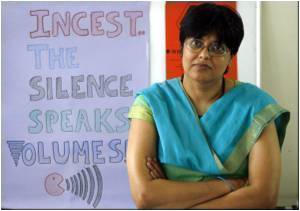Child abuse is more than broken bones and bruises. While physical abuse might be the most apparent sign, emotional abuse or child neglect leave deeper and lasting scars on a child’s mind.
Even though it is a matter of grave concern, unfortunately child abuse often remains unrecognized in the emergency department, at times due to sheer negligence of the attending staff or sometimes when they fail to abide by the “screening guidelines” in such cases.A new study in The Netherlands probed about the detection rates of suspected cases of child abuse in emergency departments, complying and not complying with the screening guidelines.
In a multi center study, Eveline Louwers from University Medical Centre Rotterdam in The Netherlands and colleagues collected data for children less than 18 years of age who visited the emergency departments of seven Dutch hospitals over a 6-month period.
A total of 24472 visits were analyzed, out of which 54% took place in an emergency department complying with screening guidelines. Reports indicate that child abuse was suspected in 52 children. In 40 of these 52 cases, a checklist of warning signs had been completed which was compared with a completion rate of 19% in the total sample. It was noticed that hospitals which adhered with screening guidelines for child abuse, the detection rate was higher than those which did not comply.
Authors concluded the study by reporting that the detection rates of suspected child abuse in children who visited an emergency department were low, but an increase is likely if uniform screening guidelines are widely implemented and religiously observed. It was noticed that the detection rate of suspected abuse was much higher in hospitals where emergency department staff complied with screening guidelines than the ones where the emergency department staff was non-compliant.
Authors, after reviewing the results of the study recommend that hospitals should encourage compliance with screening guidelines, implement strict policies, and use the outcomes of these interventions to develop an optimal screening protocol for emergency departments. Also, further research is needed on the methods of identifying genuine child abuse events among the high risk group of suspected cases identified by screening.
Reference Article
Source-Medindia










